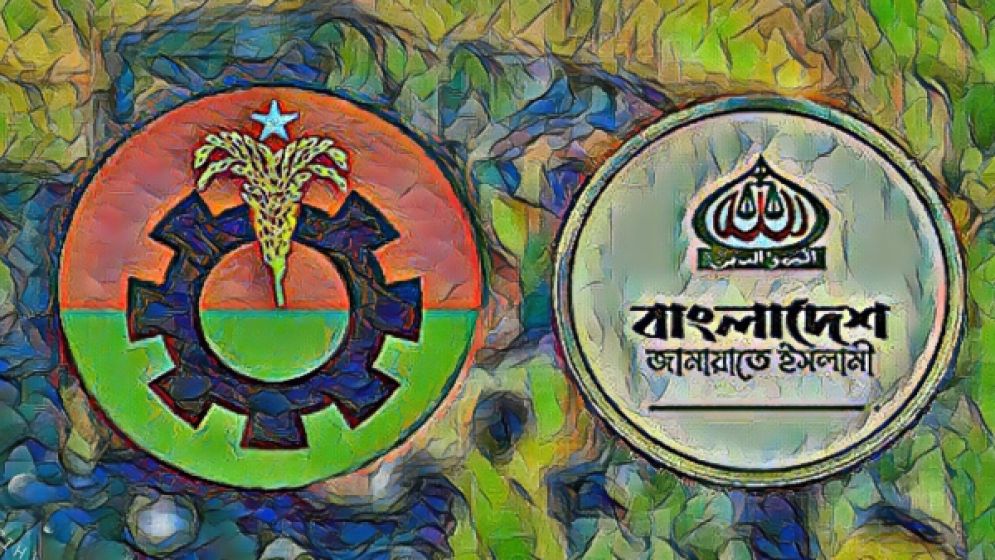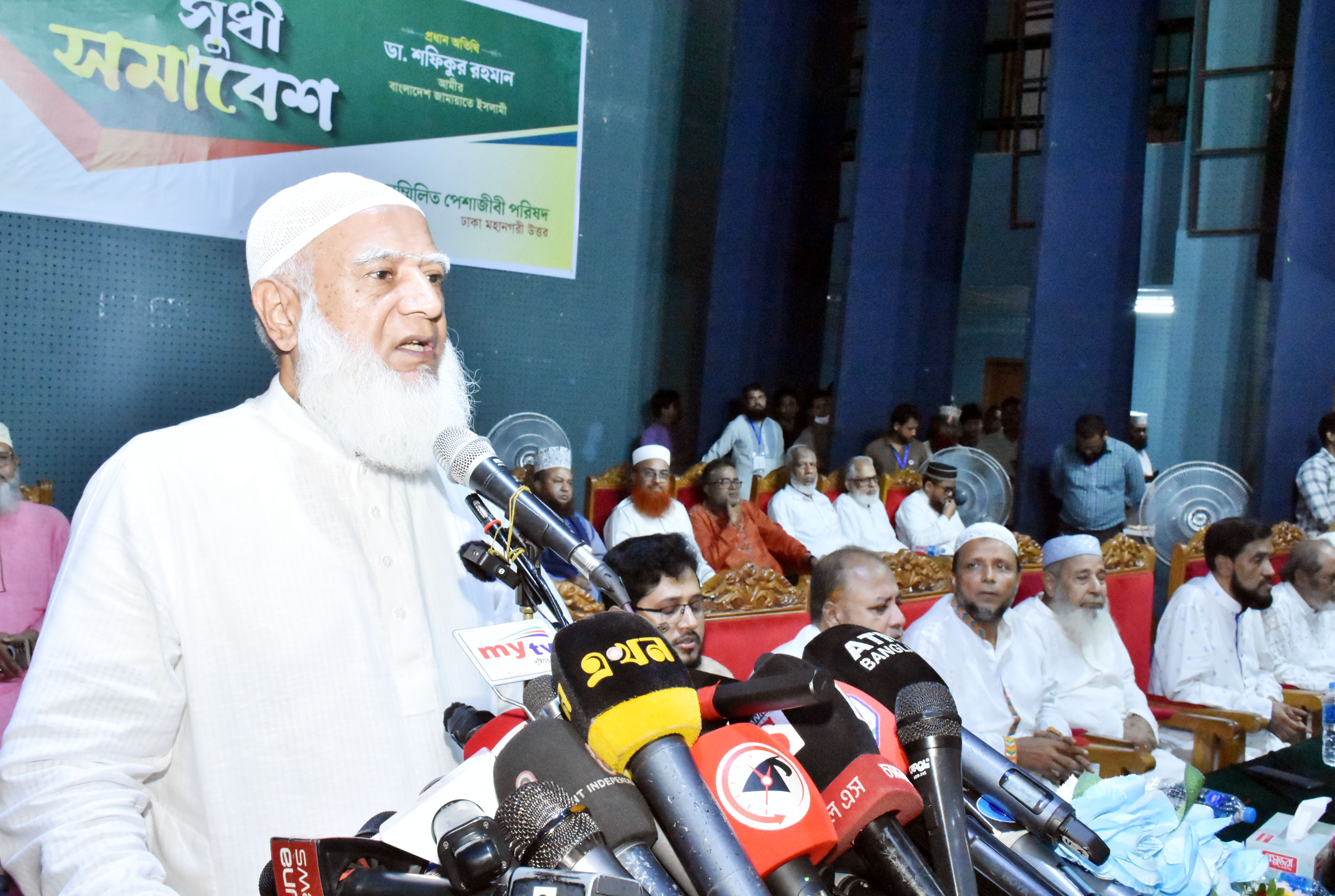Election issue has appeared to lead the “final” parting of the ways between BNP and Jamaat

The Bangladesh Nationalist Party (BNP) has recently stepped up its demands for the interim government to accelerate discussions with political parties about the electoral roadmap, driven by growing concern over the upcoming national elections.
This urgency is a key focus of the BNP's recent statements as the party seeks guarantees regarding the involvement of its leaders and activists in the forthcoming parliamentary polls.
On Thursday, a high-level meeting occurred between the BNP and the interim government's chief adviser, Professor Muhammad Yunus.
Following this meeting, the Chief Adviser’s office announced that starting Saturday, the interim government’s advisers would begin talks with political parties.
This development has somewhat eased the BNP's immediate worries, but the party remains watchful about future events.
Meanwhile, Jamaat-e-Islami, the country's largest political party, has shifted to a more patient stance regarding the election following the removal of former Prime Minister Sheikh Hasina amid a student-led uprising.
"Since you have been patient for the last 15 years, show a bit more patience. Give the interim government a chance to organize. If you keep them too occupied, how will they work?" Dr. Shafiqur Rahman, the party leader, remarked during a recent program in the capital, likely addressing the BNP’s approach to the election.
The differing views of the BNP and Jamaat-e-Islami are noteworthy, given their history of close collaboration, especially in opposition to the Awami League government since 2009. Recent student and public movements have appeared to further solidified their alliance.
Months before the last national election,the BNP and Jamaat-e-Islami began to mend their ties in an effort to launch a more vigorous movement to challenge the then Awami League government after a five-year hiatus in relations.
The two parties first allied in 1999 to form a four-party coalition that won the 2001 national election. However, due to widespread criticism of its alliance with Jamaat— which opposed Bangladesh’s liberation and supported Pakistan during the 1971 war—the BNP had distanced itself from the Islamist party since the mid-2017.
The strain in their relationship became evident in late 2018 when the Election Commission canceled Jamaat's registration following a High Court ruling.
In 2013, the High Court had deemed Jamaat's registration with the Election Commission illegal, citing conflicts between Jamaat's charter and the country's constitution and election laws.
-66d2009ed8828.jpg)
No ties with Jamaat
The BNP-led 20-party alliance officially disbanded in December of 2022 after the BNP instructed its allies not to use the alliance's name, thereby formally ending relations with Jamaat, many of whose leaders had been convicted and executed for war crimes.
Political analysts noted that the BNP's distancing from Jamaat was seen as an effort to rehabilitate its image both domestically and internationally, although Jamaat’s leaders were displeased with what they viewed as a "tactical shift" in the BNP's stance.
In an interview with The Daily Star, Mirza Fakhrul Islam Alamgir, the secretary general of BNP said, the alliance with Jamaat had long since become “dysfunctional.”
“However, we continued our anti-government campaigns in parallel through mutual consultations and this approach persisted until the previous regime fell,” he said.
Since then, said Mirza Fakhrul, they both have been engaging with other parties, given the interim government's current role and the approaching election. “At present, though, we are not in an alliance,” he asserted.
Mirza Fakhrul has been vocal since August 24 about the need for immediate discussions on the election issue. He has also expressed doubt about the efficacy of "reforms by a small group of people."
The skepticism was heightened by Chief Adviser Dr. Yunus’s recent national address, where he outlined his government’s action plan but failed to provide a specific election timeline.
In response, Mirza Fakhrul criticized the speech during a discussion in Dhaka last Monday, saying, “I expected the Chief Adviser to present a roadmap, but his speech lacked one.”
In the BNP's meeting with Yunus, Mirza Fakhrul also raised concerns about what it sees as an excessive focus on Jamaat-e-Islami in the political dialogue concerning the interim government’s reforms.
However, after the meeting with Chief Adviser Yunus, BNP leaders expressed cautious optimism about the government's intentions. Mirza Fakhrul told journalists, “The discussions were very fruitful.
“We are hopeful that under Dr. Muhammad Yunus’s leadership, the government will swiftly bring about stability with sincerity, patriotism, and competence,” Fakhrul told the media, “We believe they will implement the necessary reforms and move towards an election.”

Jamaat’s “patient” approach
In contrast, Jamaat-e-Islami has taken a more patient approach. The party's leadership, including Amir Dr. Shafiqur Rahman, sees the Chief Adviser’s speech as aligning with national aspirations and believes the government is heading in the right direction.
Jamaat-e-Islami leaders are concentrating on boosting public engagement and strengthening their organization at all levels, from central to grassroots.
After years of limited public activities under the Awami League government, Jamaat is now actively involved in field politics, seeing a possible delay in the parliamentary elections as an opportunity to better prepare for the polls.
"They ruined the electoral system, but in response, the people entrusted the current government with the responsibility of repairing the damaged institutions and creating an environment for a fair election. We are ready to give them the time they need," he told Bangla Outlook in an interview.
The ban on Jamaat, which was hurriedly done during the tumultuous time through a government circular has recently been revoked and it has paved the way for Jamaat to take part in the poll.
According to Chief Adviser Yunus's office, a free and fair election will be conducted once reforms are implemented in the election commission, judiciary, civil administration, and security forces, which it says were completely destroyed by the Awami regime.
Earlier, in a televised address on August 25, Yunus announced that the interim government has begun taking "corrective measures" to restore public trust in state institutions.
Reforming Bangladesh's institutions is a monumental task for the interim government, he pointed out. However, as of now, no specific reform plans have been outlined by the chief adviser’s office.
—-

